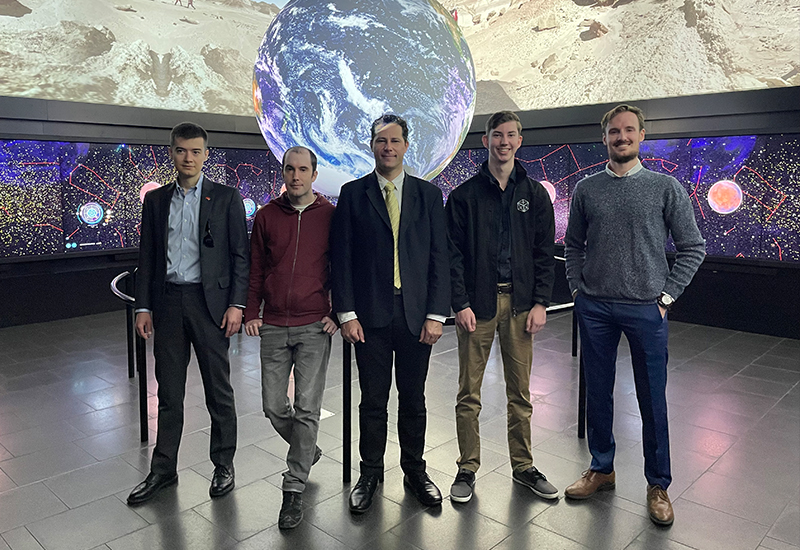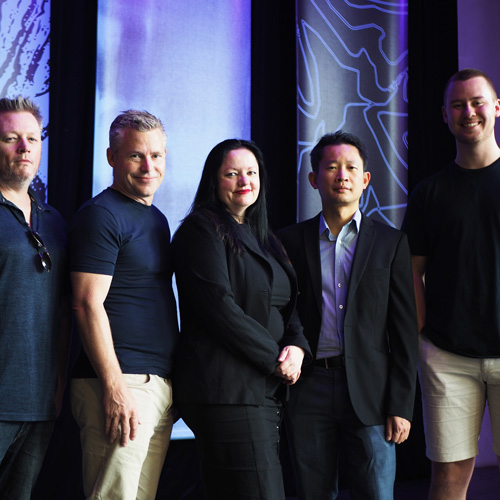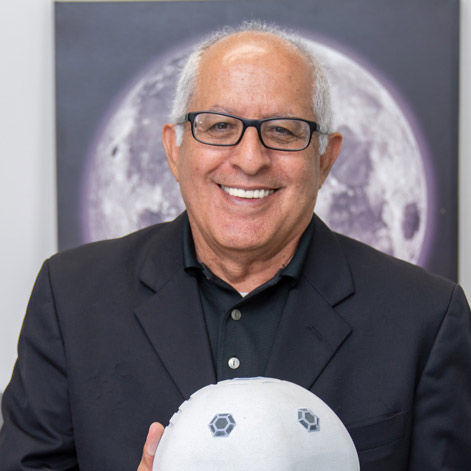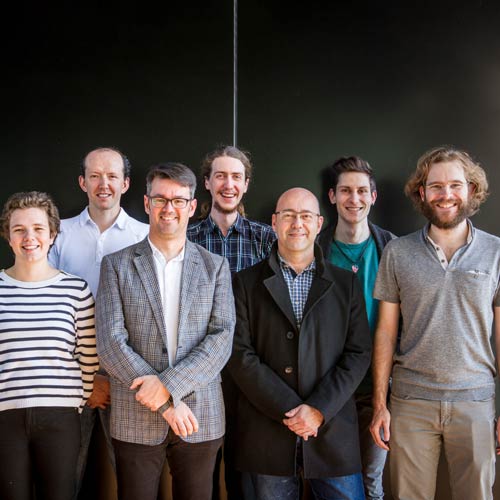
2023 Venture Catalyst Space cohort.
Credit: Innovation & Collaboration Centre
South Australia’s space sector is continuing to grow, with new space companies from around the world joining the coveted commercial space program, Venture Catalyst Space.
The program is a pre-eminent accelerator delivered by the University of South Australia’s Innovation & Collaboration Centre (ICC) and funded by the State Government’s Space Innovation Fund.
Venture Catalyst Space, has supported 29 startups that have collectively raised $14 million in additional investment and grants, while creating more than 100 space jobs.
Since its inception in 2018, Venture Catalyst Space has attracted talent from overseas as well as companies from interstate.
ICC Director Jasmine Vreugdenburg says that this year’s cohort also represents some of the strongest South Australian companies that the program has seen to-date.
“The local talent joining our program is a true testimony to the successful development of South Australia’s commercial space ecosystem,” Vreugdenburg says.
“We know our NewSpace sector is growing by more than 64 per cent per year, and we are well on track to grow our industry by more than $8 billion by 2023.
Adelaide, as Australia’s space capital, is leading this charge, and our four new local startups will bring significant breadth and diversity to our domestic space sector.
“Our new local recruits are developing incredible capabilities, from educational satellites, sustainable satellites, Big Data processing, and Artificial Intelligence technology.
The local companies will join international companies from India, Canada and New Zealand.
Deputy Premier and Minister for Defence and Space Industries Susan Close says the Venture Catalyst Space program continues to prove its success as an incubator to develop and grow innovative ideas in the space sector.
“Venture Catalyst Space is an exciting program that is proving itself as a successful springboard for high calibre space start-ups, who are truly doing some amazing things,” Minister Close says.
“South Australia’s space sector is growing at a rapid pace and the level of talent and innovation emerging from this program is building critical capability and growing investment and know-how in the state’s space economy.”
Metaspectral CTO, Migel Tissera, says he is looking to expand his Canadian company into Australia.
“We aim to create an Australian office, staffed with Australians,” Tissera says.
“We're aiming to capitalise on Australia's interest in space, and we believe our technology can offer great value to Australia.
“We are generating revenue - both in Canada and the US - and Australia would benefit from having novel but mature technology incorporated into its space and defence assets.”
Venture Catalyst Space began in 2018 when the Innovation & Collaboration Centre was awarded $1.5 million to support the growth of South Australia’s space industry by providing early-stage technology-based space startups with the skills required to create a globally scalable enterprise.
This year’s newest cohort joins the ranks of 29 former startup participants, all of whom have gone on to make valuable contributions to South Australia’s space sector.
See below for table outlining new companies.
2023 Venture Catalyst Space cohort
AICRAFT
Adelaide, Australia |
Innovative low-power edge computing module for 24/7 cloud computing at any orbit with ultra-fast AI data processing. |
Guerin Technologies
Bangalore, India |
Lightweight and compact space-deployable antennas for satellites, that significantly reduce the cost of space launches. |
Metaspectral
Vancouver, Canada |
Using edge computing and AI to detect materials and chemical compositions that are otherwise invisible to conventional cameras and the human eye. |
Paladin Space
Adelaide, Australia |
Developing reusable satellites that collect and eliminate space debris, increasing the safety of astronauts and mitigating costly damage to space infrastructure. |
Robinson Aerospace Systems
South Australia |
Robinson Aerospace is developing RASCube, an educational satellite kit that is designed to look, feel, function and assemble just like a real CubeSat, but not go into space. |
Skyspec
New Zealand/Japan |
SkySpec is detecting and continuously monitoring hazardous chemicals in the air on land and in water using the latest satellite data acquisition technologies combined with artificial intelligence and machine learning techniques. |
Team 3
Adelaide, Australia |
Team 3 have developed the DISA (Data Intelligence, Search & Analysis) platform to conduct operations in information and space domains. |
The 2023 participants will start the six-month accelerator program on Monday 20 March, with a four-week induction featuring workshops from leading industry experts. Find out more about the program at icc.unisa.edu.au/space






